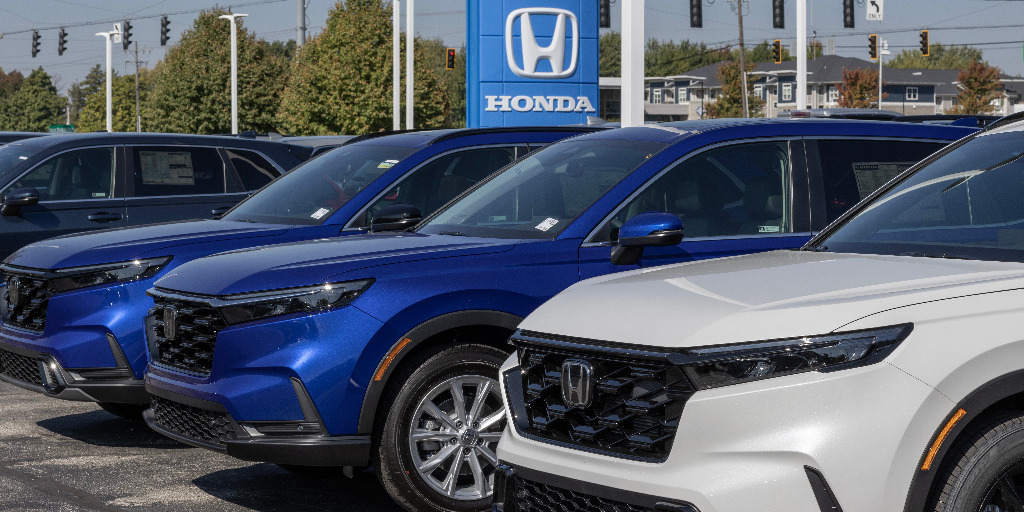The decision to buy a car outright or get a loan depends on two things: 1) The annual percentage rate (APR) on the loan and 2) your personal financial situation.

Key takeaways
- Car loans make sense when the interest rate on the loan is less than what you might reasonably expect to earn by investing in the stock market (6% or 7% is a good benchmark).
- Financing may also make sense if you would need to sell stock and incur capital gains taxes to raise enough cash to buy your new car.
- In all other cases, paying cash for a car will help you: avoid paying interest, buy a car that’s in your budget and make progress on other long term goals.
Should I finance a car or pay cash?
There are good arguments both for and against buying a car with cash.
Advantages of paying cash for a car
Paying cash for a car has several advantages, such as no interest costs, staying within budget, and full vehicle ownership. These benefits can give you financial freedom and peace of mind, and you won’t be burdened with monthly payments or interest charges.
You avoid paying interest
The most significant advantage to paying cash for a car is saving money on interest payments. In most cases, the total interest paid on a 60-month car loan totals several thousand dollars.
If you have poor credit, the costs will be even higher, as your loan terms will depend on your credit history.
It’s easier to stick to your budget
Most Americans spend way too much on car payments. In 2024, the average cost of a new car in the United States is over $47,000. Meanwhile, the median individual income is only about $37,000.
From a personal finance perspective, nobody should spend more than their annual income on a car. Yet many people do.
Cars are a depreciating asset: They lose value every year after they’re sold. Any money you spend on a car that’s over and above the minimum needed to buy safe, reliable transportation is money that you could be putting toward savings. Put simply: The more you spend on a car, the longer it’s going to take you to achieve other financial goals.
Breaking down the cost of a vehicle into monthly payments distorts the amount you’re actually spending. If you have to pay the entire cost of a car in cash, you’re much less likely to overspend.
» MORE: Car affordability calculator
You own your car, not the bank
When you buy a car with an auto loan, your financial institution owns the car until the loan is paid in full. When you get an auto loan, the lender gets the title — the legal document that proves ownership of the car. And if you stop making your monthly car payment, the lender can legally repossess and sell your car.
Owning your car outright also allows you to sell or trade it in at any point, giving you the flexibility to upgrade or downsize your vehicle as necessary. Unless you make a large down payment, it’s very common for borrowers to be underwater on their car loans. When you’re underwater, you owe more on the loan than the car is worth. If you need to sell or trade a financed car that’s underwater, you’ll need to come up with additional money to make up the difference between what you owe on the loan and the market value of your vehicle.
» MORE: What to do you if you fall behind on car payments
When a car loan makes sense
If you have enough money to buy a car with cash, you could still get a car loan and then use that money for other things. In some cases, it may make sense to do exactly that. Just to be clear: I’m not saying to get a car loan and then use your cash to buy a boat!
You can earn a higher interest rate than your loan APR
Most investors expect to earn an average interest rate of at least 6% in the long-run. When you can find loan terms at a lower interest rate (especially if it’s much lower), auto loans allow you to keep your cash invested and earn the difference between your investment rate of return and the interest rate on your new car.
You have other high-interest debt
Many credit cards charge much higher interest rates than even the most expensive auto loans (e.g., 20%+). If you have credit card debt, you would be better off using any cash to pay down that higher-interest debt and financing a car at a more reasonable APR.
You want to build credit history
Financing a car can help build good credit as long as you make your monthly payment on-time every month. Although the car loan itself does not directly contribute to building credit, consistently making the monthly payments demonstrates responsible financial behavior, which can have a positive effect on your credit score in the positively affected
Financing a car comes with interest expenses, which can significantly increase the total cost of the vehicle.
You have no other option
For many buyers, auto loans are a necessity. If you don’t have cash to buy a car, you don’t have cash! In this case, your goal should be to take out the smallest loan amount possible. You can do this by making a larger down payment and buying a used car. Yes, it’s indeed possible to finance a used car. Not only are used cars less expensive, they will depreciate more slowly than new cars, though the uncertainty may contribute towards a higher interest rate. (New cars knowingly depreciate fastest in the first year or two.)
Selecting the right financing option
Selecting the right financing option involves considering bank loans, credit union loans, and alternative financing methods. Each option has unique advantages and disadvantages. Their differences can help you make the best decision for your financial situation and car purchase.
Bank loans
Bank loans offer competitive interest rates and terms for car financing but may have stricter eligibility requirements. Improving your credit score and comparing rates from multiple lenders potentially secures a favorable bank loan for your car purchase. However, it’s vital to carefully evaluate the terms and conditions of the car loans to ensure it aligns with your financial goals.
Credit union loans
Credit union auto loans often have lower interest rates and more flexible terms than bank loans but require membership. If you’re a credit union member, you may be eligible for a car loan with more favorable terms than traditional banks.
Credit unions typically provide personalized service and a straightforward loan process, making them an attractive option for car financing.
Alternative financing methods
Alternative financing methods, such as leasing and personal loans, can provide additional options for car financing. Depending on your financial situation and needs, these methods may offer unique advantages and disadvantages.
Exploring all available financing options, including those offered by a financing company, increases the chances of finding the right financing solution for your car purchase.
Summary
Although it’s never a bad idea to pay cash for car, financing can make sense if you can get a low interest rate and invest your money (or pay down higher-interest debt) to get a net positive return. If you have no choice but to get a car loan, take out the smallest loan amount you can by buying a used car and putting money down.
FAQs
What are the disadvantages of buying a car with cash?
Purchasing a car with cash can limit your vehicle options and deplete your cash reserves, making it an unwise financial decision.
Why do dealerships want you to finance instead of cash?
Dealerships want you to finance a vehicle rather than pay in cash. They can take advantage of various incentives and potentially make thousands of dollars from a commission or sales incentive on the loan.
What factors should I consider before deciding whether to pay cash or finance a car?
When deciding whether to pay cash or finance a car, it’s important to assess your income, expenses, savings, credit score, and overall financial situation to make the best decision for you.
How can I negotiate the best price?
Research market prices, be prepared to walk away if necessary, and maintain negotiation leverage by not revealing my payment method upfront. These steps are needed to negotiate the best price for a car.
What are the benefits of financing a car through a credit union?
Financing a car through a credit union offers the benefits of lower interest rates, more flexible terms, and personalized service compared to a traditional bank loan.

